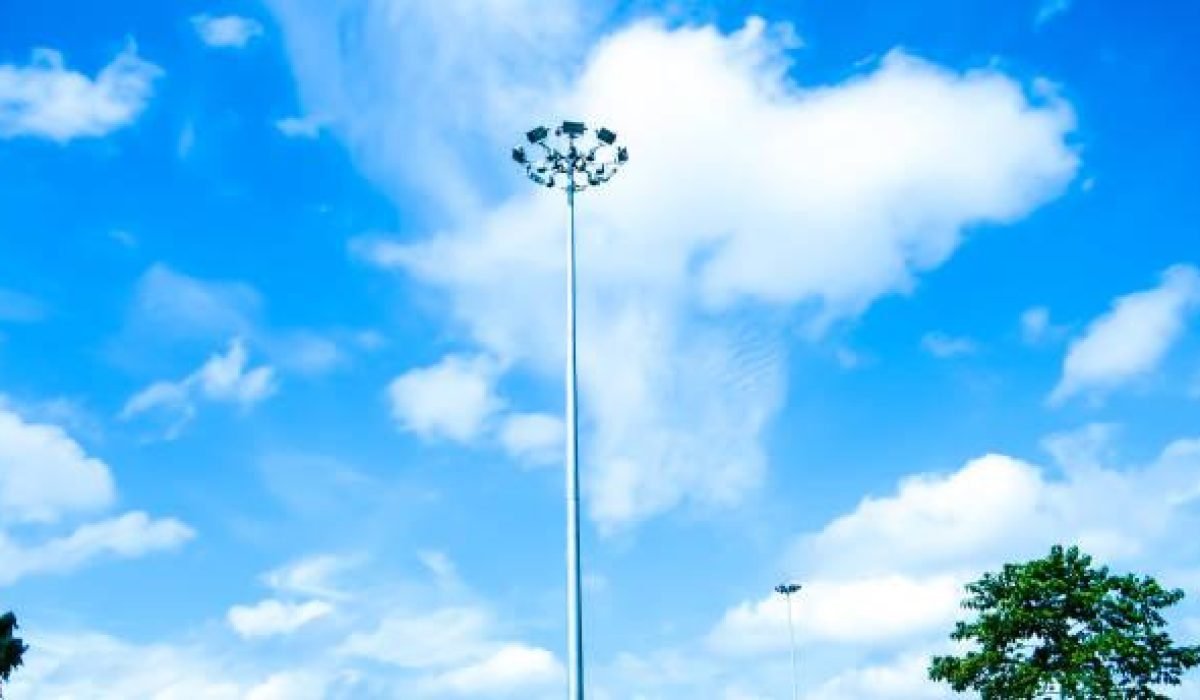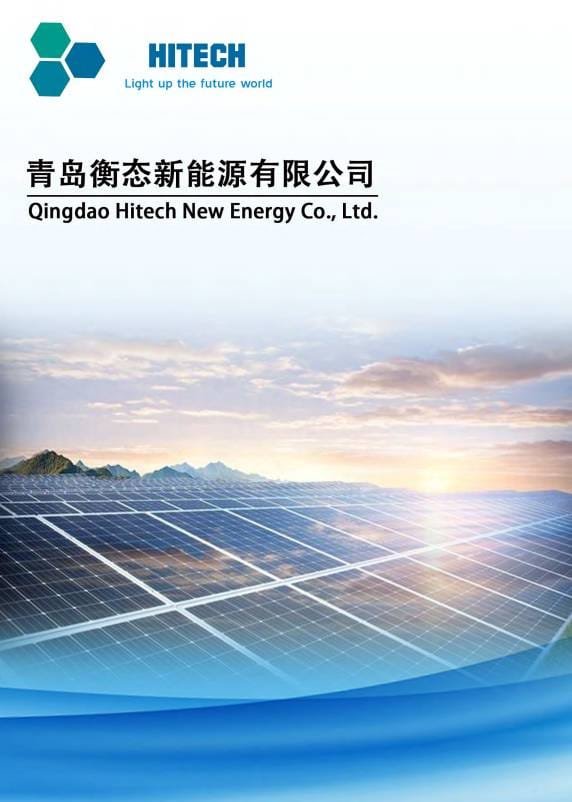At a freight terminal in Ghana, a single lighting failure halted operations for three hours. That’s when we knew—high-mast lighting wasn’t just an upgrade, it was a necessity. These systems aren't just about brightness—they're about reliability, safety, and real-world ROI.
High-mast lighting is engineered to cover massive areas (up to 20,000 m²) with fewer poles, smarter controls, and longer lifespans—ideal for ports, highways, airports, and logistics zones.
Whether you’re battling shadows, spiraling energy costs, or constant bulb failures, this guide walks you through the solution—one pole at a time.
Eliminate Blind Spots and Shadows with Elevated Uniform Lighting
Let’s be honest: visibility problems aren’t just annoying—they’re dangerous. Poorly lit areas can cause collisions, near misses, and more stress than necessary for drivers and site crews.
High‑mast lights are tall enough (30 to 50 meters) to spread light evenly, minimizing blind zones and shadows that sneak into workspaces.
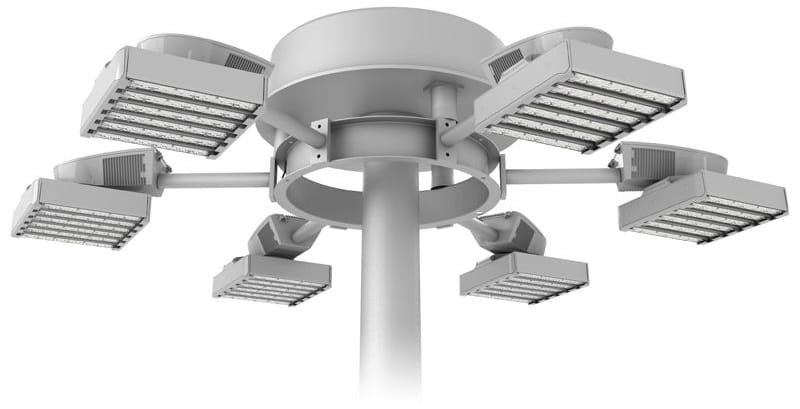
At one site near a container yard, we swapped out twelve mid-height poles for three high-masts. The improvement wasn’t just visible—it was measurable. Night shift productivity improved by 18%, and incident reports dropped to near zero.
It’s not magic—it’s about beam geometry. The LED arrays on high-mast heads are designed to overlap, maintaining uniform brightness and avoiding hotspots. Engineers aim for a uniformity ratio around 0.4–0.6, ensuring that no area is overlit or ignored.
Cut Downtime and Labor with Ground-Level Maintenance
If you’ve ever had to shut down operations just to replace a light 12 meters in the air, you know how costly traditional lighting can be.
Modern high-mast setups include winch systems that let you lower the fixtures to the ground—no cranes, no special crew.
One logistics yard we worked on in Lomé had a winch-lowering system that paid for itself in less than 18 months. The maintenance crew used to need outside contractors and a mobile lift. Now, they can service every pole in-house, safely and efficiently.
And with LED fixtures rated for 50,000 hours (some even higher), maintenance becomes a rare event instead of a routine headache. We use galvanized steel poles with anti-rust coatings, and in places like coastal Uganda, that has made all the difference.
Client Testimonial
“We used to replace bulbs every 6 months. Now, it’s been over 5 years.”
— Port Operations Manager, Tema, Ghana
Save $1,000/year per Pole with LED + Smart Dimming
Old lights don’t just burn electricity—they burn through your budget. That’s especially true with halogen or metal halide systems.
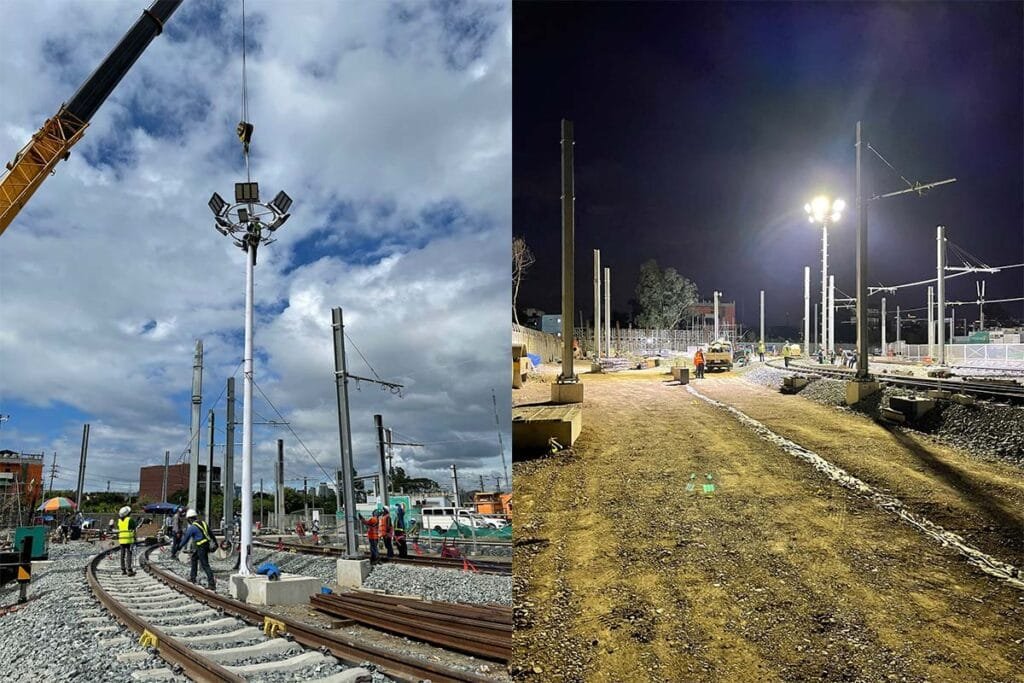
A well-configured high-mast LED system can save up to $1,000/year in energy costs per pole—without sacrificing brightness.
Here’s a real-world breakdown from a logistics client in West Africa:
| Lighting Type | Avg Wattage | Yearly Energy Use | Est. Annual Cost |
|---|---|---|---|
| Metal Halide (Old Gen) | ~1600 W | ~14,000 kWh | $1,400 |
| LED + Smart Dimming | ~450 W | ~4,000 kWh | $390 |
Dimming controls make the savings even more significant. Sensors detect motion or daylight, adjusting brightness automatically. And with programmable scheduling, you can set higher intensity during peak traffic hours and dial it down during quiet shifts.
One High-Mast vs. Five Poles: Cut Clutter and Cost
Can one pole really do the work of five? We’ve seen it firsthand—and the answer is yes.
A single high-mast pole can cover 10,000–20,000 m², simplifying infrastructure and reducing trenching, cabling, and installation labor.
In Accra, we helped a client illuminate a sports field using just four high-masts instead of ten standard poles. The result? Better lighting, less cabling, and a cleaner overall design. The reduced pole count also freed up valuable real estate for other use.
Visual Comparison
Imagine:
- 1 pole = 20,000 m²
- 5 poles x 4,000 m² = 20,000 m²
- But with 5x the installation cost and cable work
Fewer poles also mean fewer failure points. That’s a logistical and financial win.
Built for the Elements: Rain, Wind, Dust—No Problem
In harsh climates, durability isn’t optional—it’s critical. Whether it’s monsoon winds in Nigeria or salty air in coastal Togo, your lighting system has to survive the elements.
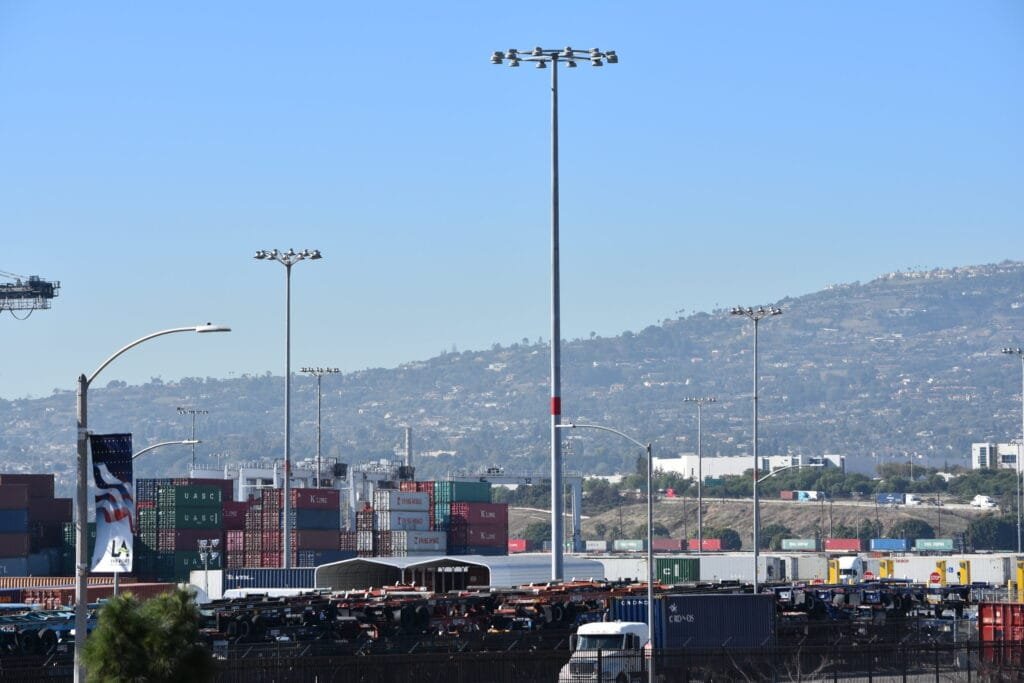
Our high-mast systems are engineered for durability—with wind resistance up to 130 km/h, IP66-rated LEDs, and anti-corrosion coatings.
We’ve installed systems in places that see daily dust storms or triple-digit temperatures, and they’ve held up without fail. For added peace of mind, we now include tilt sensors on all poles—if anything shifts due to erosion or impact, the alert goes out immediately.
We also use ISO 12944-rated C5M coatings in high-salinity zones—especially valuable near ports and coastlines.
Recap: Why High-Mast Wins
| Feature | High-Mast Advantage |
|---|---|
| Coverage Area | Up to 20,000 m² per pole |
| Maintenance | Lower from the ground—no crane needed |
| Energy Efficiency | Save $1,000+/year per pole |
| Durability | Rated for storms, corrosion, and vibration |
| Visual Cleanliness | Fewer poles, less clutter |
Want to See Your ROI in 30 Seconds?
Ready to find out what you could save by upgrading?
👉 Download Our Free Lighting [ROI](https://sunlurio.com/contact/) Calculator
Or let’s talk—Request a Free Site Lighting Assessment

